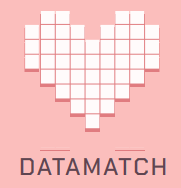
c/o www.onlinepersonalswatch.com
Valentine’s Day is here once again. For many hopeful singles seeking companionship on the most romantic of days, finding that special person remains a real challenge. However, with the help of four Wesleyan students, it may no longer be so difficult.
Following a series of talks with its creators at Harvard University, Mahey Gheis ’22, Liam Caplan ’22, Kyron Roberts ’21, and David Lepelstat ’22 are launching the matchmaking service Datamatch on Wesleyan’s campus in the hope of helping its three thousand students find their perfect match.
In 1994, a team of innovative students at Harvard created the all-important algorithm that would enable college students to discover their most compatible matches. Since then, Datamatch and its extensive survey have expanded to many other American colleges such as Brown University, Columbia University, and Wellesley College. This year marks Wesleyan’s addition to that list.
“It all started with an email,” Caplan explained.
The Harvard Computer Society came across Caplan and Lepelstat’s improv group Gag Reflex through WesNest, which prompted them to reach out about Datamatch.
“They send out feelers and get people to create a survey particular to their school,” Caplan said.
With questions such as “What’s your favorite party spot on campus?”—and answers ranging from “Fountain to Mezzo/Conspiracy” to “North College” and “Sci Li basement stacks riding the mechanical bookcases wind in your hair”—it’s safe to say that this Datamatch survey was made with the quintessential Wesleyan student in mind.
Crafting such Wesleyan-specific questions was no easy task. Over the winter break, the group dedicated a lot of time and thought to compiling the best questions for survey takers. Admittedly, the structure of Datamatch’s questions imposed some parameters on the group’s creative process. However, for the most part, the team were free to tailor the survey and its questions to Wesleyan’s distinctly diverse student body.
“We tried to make it relatable to all sorts of student groups at Wesleyan,” Caplan noted.
In fact, those who choose to engage with Datamatch have the option to request purely platonic or romantic matches, making it a platform for forging new friendships and finding love.
“Our main goal was to just have it [filling out the survey] be a fun experience,” Lepelstat explained.
Lepelstat was also quick to attest to the survey’s careful harnessing of data as well as its security.
“I think a lot of people are worried about giving away this information and the legitimacy of this,” Lepelstat said. “Your data is not being used in any ways that would be dangerous to your privacy.”
Not only is it safe to use, it also has produced some very interesting results.
“They have had issues in the past with people matching with their exes,” Gheis revealed.
Nonetheless, Datamatch’s founders, along with the the team now implementing it at Wesleyan, are confident that the survey and algorithm does indeed work.
“There is a history behind it connecting people who have connected or will connect,” Gheis stated.
How the algorithm works remains unknown and in spite frequent communications with its Harvard founders, Gheis, Caplan, Lepelstat, and Roberts, still do not know the secret behind this match-making machine.
Currently, Datamatch is available at 26 institutions across the United States. Harvard University and Washington University in St. Louis, Mo. are the most active universities. Yet, it seems as if Wesleyan students are equally keen to put it to the test for themselves. As of Feb. 13 at 6:00 p.m., 945 Wesleyan students—almost a third of the campus’s student body—have completed the survey. Datamatch further divides this data by residential location (the most living in senior wood frame houses) and years (with sophomores as the leading respondents). This comes is in spite of fears from the group who have spent the days leading up to Valentine’s Day encouraging their fellow peers to take part in the survey.
“I was kind of nervous about how it would be received because it does feel like maybe not a very Wesleyan thing,” Gheis said. “A lot of people have told me they enjoyed filling it out.”
Of course, participants will have to eagerly anticipate the results until they are released this Friday, Feb. 14. Each person can expect to receive 10 matches with the top three being symmetric, meaning that a person’s top three matches will correspond with another person’s top three matches. For example, if a person’s top match is the lab partner they have “Intro to Bio” with every week, that same lab partner will also be their top match. Looking ahead to the results release, the group are optimistic that people will be driven by the urge to connect with new people romantically or otherwise. To some extent, Wesleyan’s small student body size can make it feel as though there couldn’t possibly be anyone else to meet: but that’s where Datamatch comes in.
“That’s the way DataMatch can be distinguished…through the survey and the questions asked,” Lepelstat said. “I think the sort of randomness of it will create fun matches.”
In this first trial, the success of matches may indicate whether Datamatch has a future at Wesleyan for Valentine’s Days to come.
“I hope people are curious about it… hope people want to reach out,” Gheis said.
Tiah Shepherd can be reached at tshepherd@wesleyan.edu.
Comments are closed